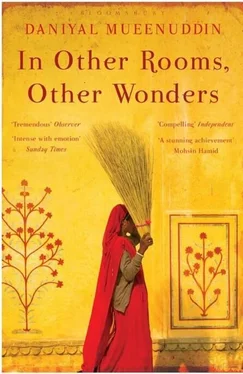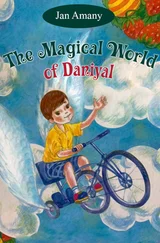Leila, or Lily as her friends called her, sat perched on a stool, her slender legs held in her bare arms, chin on her knees, looking out at the water. Not yet thirty, she was unusually pretty, her hands and feet and small upturned nose — her high cheekbones, her lips — sharply defined and yet giving the impression of softness, as if she had been trimmed out of soft brown velvet with fine scissors. Her hair, worn long and with bangs, and skin that turned reddish brown in the sun, gave her a sleek appearance, the whole effect being that of a fastidious cat, tail wrapped around herself in repose, independent.
‘Seriously, Mino,’ she said, flicking the stub of a cigarette far out into the water. ‘You’ve got some real prizes on your guest list. She’s about sixteen, and he looks like he breaks kneecaps for a living.’
‘Oh, chill out. It’s not like I invited them, he’s probably some film producer, and she’s about to be a star. Let the kid enjoy herself.’
‘That’s your solution to everything, my love. You always tell me to chill out.’
The sun had just gone down over the distant line of the dam, leaving a pink band on the horizon. Light flashed off the waves blown up by a slight breeze, chip chip chip, silver. The light seemed familiar — when had she been here before, on a night like this? — and then it came to her, a memory of an entirely different place. As a girl her father took her to the mountains once, to the Kaghan, where he fished for trout with a retired English brigadier, an old colonial. She remembered the dry spice of the pine trees in the air, the valley falling vertically down to the river, and the shallow curve of a stream, an eddy, with trout rising at dusk, pockmarks on the still water.
That winter she had been in London for a wedding, not a close friend but the wedding of the season, the daughter of some bureaucrat who made a crooked pile on the privat ization of a steel mill and couldn’t return to Pakistan because of cases against him in the National Accountability Bureau — ‘nabbed,’ as they called it, almost a mark of distinction. Late at night after the mehndi, riding through London in someone’s hilarious car, she’d been in a bad accident. She woke at dawn in the hospital, severely concussed, and watched a rare snowfall from her bed, a thin drift on the sill, perceptibly gathering as the large flakes settled out of the gray first light and pressed against the window. She couldn’t remember anything at first, where she was, why she was there, sleeping all through the day, until it began to come back, but changed, the experiences of another person.
She had a dream. Flying alone in an airplane, high above the clouds through an ice blue sky, the wing caught fire, orange and flickering. Metal flew off in sheets, the machinery coming apart. A panel above her opened, crumpling back, throwing her out into the slipstream, and her parachute shook out like hair falling loose, streaming lines, then a canopy overhead. The plane spiraled away below her, until it became a speck and hit the ground with a burst of flame, as she drifted down alone through an enormous sky. She woke at dusk in the little hospital room, the snow still falling quietly outside as the sky grew dark in the window, so cold outside, so warm inside.
For the first time, painfully, Lily got out of bed and went over to the window, the ridiculous hospital gown not hiding her nakedness. A visitor had brought candles, and now she lit one and turned off the lights. It seemed to her that the jet falling away was her past, and that she had been forgiven, believing it with all the intensity of the dream, like the intensity and purity of love in a dream. She would forgive herself, for the wrongs she had done and the wrongs done to her, the pain she had caused her parents, who maintained the proprieties on her father’s Burma Shell pension, forgive herself for money she had thrown away, the men she had slept with, refusing intimacy, imagining there would be no cost. A few others blamed her, friends she had abandoned or guilelessly betrayed, friends thrown over, and acquaintances treated cruelly. She might not have survived the car accident. Only her barest self had gotten through, and for a while she absolutely believed that she had been freed.
She lay in the hospital bed at twilight after a day of snowfall and allowed a change to come over her, absolving herself.
That was two months ago. Since then she had given a total stranger a blow job after taking Ecstasy at a party — several years earlier a wave of Ecstasy swept through Islamabad, and still hadn’t crested — and had another time quite tenderly slept with an old lover, who was visiting from his new home in Mississippi, of all places. But she held on to a little bit of that cleansed self, for evenings when she stayed at home, though she had places to go, sitting in front of the fireplace in the cool of a winter night, looking into the glowing orange flames and seeing mountains and valleys, storms, horses, huge crowds of men, in the flame that burned her cheeks and face. She had slowly begun to turn away from her friends, looked at them, at their conversation, their jokes, from a slight distance.
Her parents left her alone, as she had so harshly taught them to, although she lived in a cottage built in the large garden behind their house. They had almost no money — worrying about electricity and gas, about the car breaking down, and kept only a cook and a bearer — but her father had bought this large plot in Islamabad in the 1960s, when they were to be had for nothing. Today worth eighty or ninety million rupees, on Margalla Avenue, the most fashionable place to live, this property allowed them to maintain a position in the world of their birth, one of the old feudal families from Lahore, but with the land all sold in the previous generation.
Now at the party, with a breeze off the lake gliding down the slope of the hills to the east, she rose and took her wrap. The ancient bartender, a retired servant from the regimental mess of Probyn’s Horse, who served at all the parties, and whose leathery glum face made him look as if he had been pickled in gin, poured her a glass of champagne without being asked, taken from the stock being kept for the inner circle.
‘For Madam.’
Presuming slightly, he added, ‘So many new people here, little people. They steal cell phones and cameras and make trouble.’
‘So I hear, Khan jee. Once upon a time we were the new ones.’ Taking the bottle that he had placed on the table, she poured a glass and handed it to him. ‘There, drink that to the way we used to be, old man.’
She walked up toward the swimming pool, which had been built on a headland away from the house, with views over the water and the lawns below. She could be alone there for a moment, to compose the face with which she would meet the evening. A few more glasses of champagne, and she’d be fine, she knew, would enjoy it, people, personalities looming into view and disappearing, characters — and then, dancing. Sitting on a chaise longue at the far end of the pool, she lit a cigarette. Below, in a pavilion by the bar, music played, not yet loud, Cesária E¨vora, the voice calling, the beginning.
She heard a footstep behind her, and a man emerged from the darkness of a verandah.
‘I’m sorry, do you have a match?’
She looked at his face, half visible in the blue shimmer cast by underwater spotlights. Plain dark suit, white shirt. Light-framed, thin lips and a fine long nose with a distinct hump, as if broken and improperly reset, the break offsetting the feminine lips.
‘Tell me that’s not a pickup line.’ She took a lighter from her little beaded handbag and passed it to him.
He smiled, the impression held back for a moment and then spreading across his face. ‘No, I actually needed it. You don’t remember, but we’ve met — at Bugoo Moono’s place. I’m Murad Talwan.’
Читать дальше












